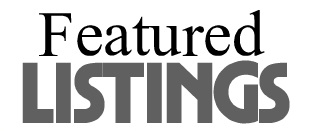I am a business broker based in Florida, and also a member of an Association called the Business Brokers of Florida. The Business Broker of Florida Association (BBF) is the largest state business broker association in the country and the second largest association of business brokers in the world. The activity within this association does provide the business owner and or entrepreneur some insight into actual activities related to businesses buying and selling.
Most all business transactions involving the sale of private companies and information regarding this activity remains very private. And accurate pertinent information can be difficult to attain. What does a business similar to yours sell for?, How long does it take to sell a business like yours, and how many businesses like yours are being sold. One can search and view a lot of information regarding Florida business being bought and sold at Free Search on Businesses For Sale
Businesses For Sale In Florida
Florida is experiencing the current economic downturn and is somewhat representative of the US economy. Actually Florida may be feeling the effects of the downturn more than most of the US as its economy seems very tied to the real estate industry. I have always found value in trying to understand some of the numbers behind the numbers to help me to perform my role as a business broker. The following are some items of note as it relates to business buying and selling activity in Florida.
Certainly not all business sold do involve a business broker, nor are all businesses sold in Florida handled thru this association, but as a rather large association it is fairly representative of the buying and selling activities in Florida. Web based businesses and or websites may be sold at an online auction, larger “brick and mortar” companies may seek larger M&A firm for representation, but the activity within this association does provide some insight for the business owner outside of Florida that may buy or sell a business.
Per the currently active listed data available thru the BBF Association- As of today almost 4000 business are for sale of those:
1) Businesses For Sale in Florida over $10M – 5
2) Businesses for Sale in Florida Priced over $5M- 30
3) Florida Businesses for Sale Priced over $1M – 330
4) Businesses in Florida For Sale with Net Income over $100K – 1227
Other observations:
a) Largest type of business Listed For Sale in Florida– Restaurants – 773 (this represents almost 20% of all businesses listed) of those 223 have Net Income >$100k.
b) Home Based Business For Sale – 402 (represents about 10% of all businesses listed for sale)
c) Florida Internet related businesses for sale 43, of those: Asking Sale Price $1M+ is 8, those with net income over $100k – 20
Businesses Sold in Florida thru the Business brokers of Florida
of all the business sold in the last year (6/2009-6/2010) Here are the following Averages on Florida Business Sold.
- Average Sales/Revenues- $636k
- Average Selling Price- $252k.
- Average Adjusted Net Cash Flow – $114k.
- Average number of Days to sell the business- 226 days or approx. 7 1/2. Please note this figure does not include business that got listed for sale and did not sell. Estimating those in the average time to sell a business may exceed a year(my guesstimate ).
If you own a business and do not plan on exiting from that business for several years, it still makes sense to understand the value of your business. What is the asset that you have worth? What sort of multiple of cash flow should your business sell for?
Understanding what other similar businesses are selling for does provide some basis. but the devil can be in the detail… Also growing your company thru acquisition can be both a viable and profitable business decision. What may it cost to acquire a synergistic company? A review of some reliable numbers may be a good first step in the needed due diligence.
(some info shared above compiled from Business Broker of Florida Assn website as of 7.30.2010)









